“Hebrew has risen from the grave. Learn Hebrew. It is not only for Jews,” lecturer Simona reminds us
She is a lecturer who does not stop learning. Simona has been teaching all her life and reminds us that Hebrew is not just for Jews. She now helps students to learn Hebrew.
She is a polyglot who speaks Hebrew, German, English, Polish and Yiddish. She also got an internship in Israel thanks to her eloquence face to face with an Israeli diplomat.
Connecting language with emotions is her way how to learn and remember. Right now, she is motivated to learn the Levantine dialect of Arabic because she intends to read the poems of Mahmoud Darwish, the Palestinian national poet in the original.
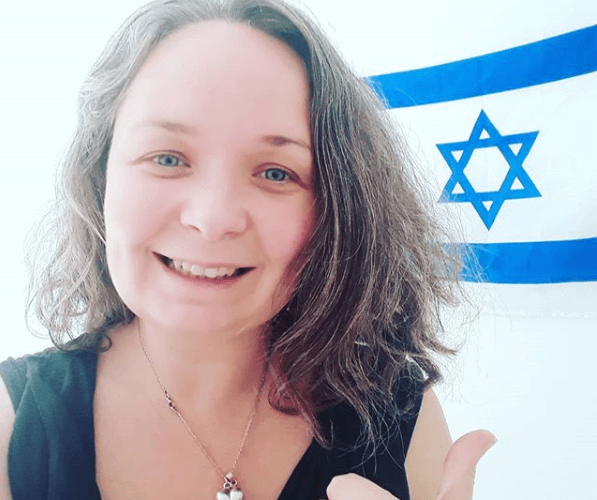
Who are you? What do you teach and what are you learning?
I am a polyglot and a lecturer of Biblical and modern Hebrew at the Masaryk University. Outside of Masaryk University, I teach modern Hebrew in my project Hebrew with Joy (Hebrejština s radostí). Besides, I also teach German.
In addition to Czech, I speak Hebrew, German, English, Polish, Yiddish and I learn the Levantine dialect of Arabic. It’s a slow progress but I am getting better every day :). Learning Arabic is also important for teaching Hebrew, because only now, I really see the connections between these languages, especially how they affect each other.
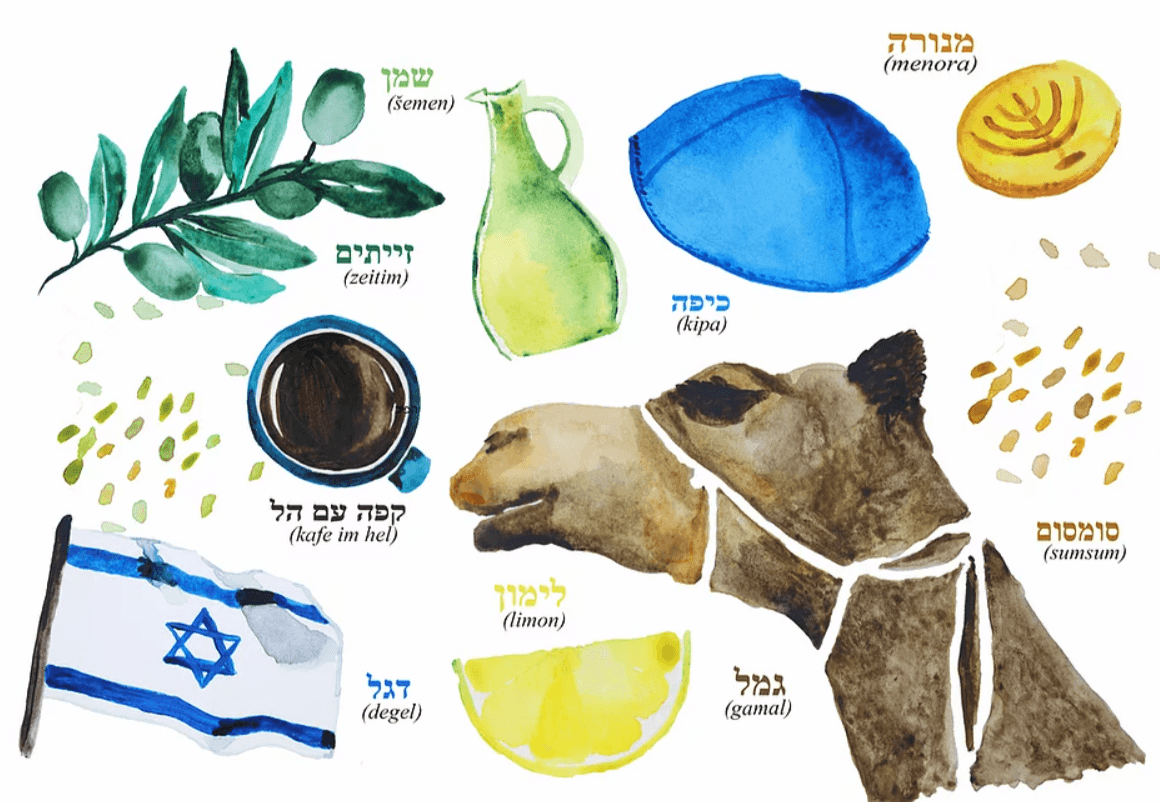
How did you become a lecturer of Hebrew? Did you want to become a lecturer?
I’ve never really wanted to lecture and teach, but I’ve basically been doing it my whole adult life. I started in the field of Czech-German language animation, later I started teaching German. And after returning from a study stay in Israel, teaching Hebrew was the next step, too.
Why were you originally not fond of teaching?
My goal was to become a scientist, and teaching never really occurred to me. I saw myself working in archives but actually it came true as well, partially. However, I have always liked to pass on my knowledge, especially that related to foreign languages and cultures. I started as a Czech-German language animator.
What is the most common stereotype about Hebrew that you hear? Is it true?
The most common stereotype is how difficult Hebrew is when it’s not written in Latin. That is not entirely true. My philosophy is that each language has different “snags”. As my dissertation supervisor and mentor always says “when you manage to read and write, you have won”. I can confirm that.
What do you find most interesting in Hebrew?
Undoubtedly, the most interesting thing is the dynamics of Hebrew slang and the fact that modern Hebrew literally rose from the dead at the end of the 19th century.
Many people do not know it but Hebrew is not only a language of Jews. It is also spoken by Arabs, Druze and other minorities living in Israel. It serves there as a universal means of communication. The plan of Eliezer Ben-Yehuda, the founder of modern Hebrew, has been fulfilled to 120%.
What surprises you the most about your profession?
Most surprising are always different motivations for learning Hebrew. There are also stunning various ways how people got to learning Hebrew and how they do it day to day. People often forget that every way is a great way. There is not one best way to learn Hebrew.
What was your motivation?
I was once in Germany at a seminar on Jewish writers. We were supposed to read Leu Goldberg, one of Israel’s most famous female writers. The writing was great, but it was a German translation. So I decided to read Leo in the original, and in a year and a half it really happened! The original is always much better.
What are you trying to teach your students besides language? What values do you put into the lesson?
I am trying to show them all the possible ways to learn a language. They can later do it on their own without me and be more independent in the language learning. Grammar and words are just a means to an end. I also try to teach my students how to find their way in Israel and how to enjoy the local environment there. It is completely different from the Central European one.
View this post on Instagram
What kind of student are you when you have to learn something?
I am diligent, honest and I am interested in the realities of the country. In recent weeks, I just had a tandem with a college colleague, she taught me the Arabic alphabet and I taught her German. Foreign languages have always worked for me. As a student, I like to experiment.
How do you currently teach? Have your techniques and tactics changed during the corona period?
I only teach online right now, which I did only partially before the corona. I had to change my teaching techniques and I have been educating myself in online teaching.
Would you recommend Vocabulary Miner to another lecturer or student? And why (not)?
Yes, I surely would. The Flashcard app Vocabulary Miner makes teaching vocabulary very easy. I have all the vocabulary in one place and I don’t have to worry about losing them anymore. I immediately uploaded two Word lists from Czech to basic Hebrew words to my students, and one English- Hebrew Word list. I will certainly add more.
You can also find the Hebrew Word lists made by Simona in the Vocabulary Miner vocabulary app. How to do it?
- First, download the free Vocabulary Miner app on Google Play or the App Store.
- Then click on the link that takes you directly to the basic Hebrew vocabulary: https://vocabulary-miner.com/package/english-hebrew-basics
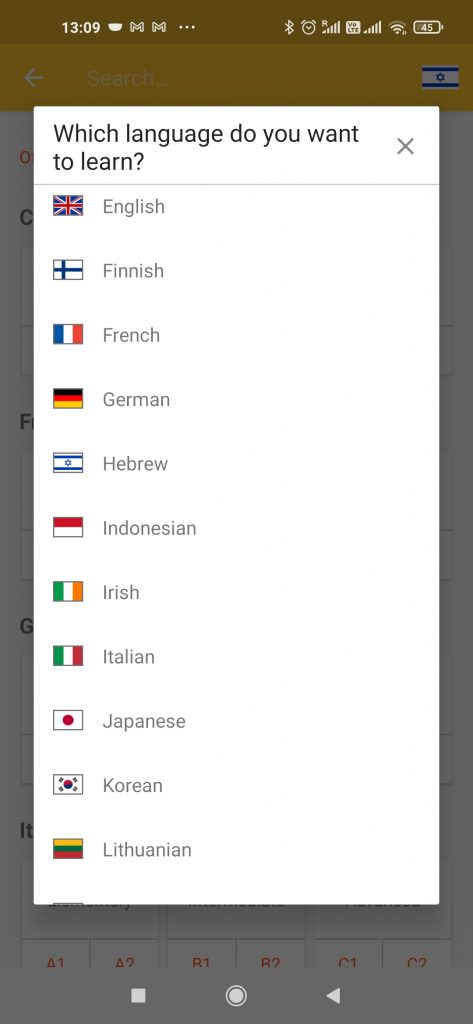
Vocabulary Miner only begins with Hebrew but the database gets bigger.
If you would like to Google translate English to Hebrew and then learn it in the vocabulary app, you can find an easy tutorial on How to create dictionary with Google Translate and Flashcards
If you are looking for an app to learn Hebrew vocabulary or even learn biblical Hebrew vocabulary in the app, Vocabulary Miner can help. Look at How to make Flashcards in 4 easy steps and How to remember vocabulary
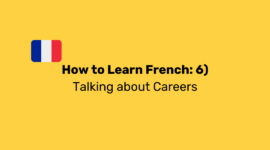
How to Learn French: 6) Work - Talking about Careers
Welcome to the sixth episode of our "French words and lessons series: How to learn French easily". In this installment, we'll be exploring the language of work and careers, providing you with essential French words to …
Read more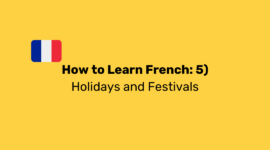
How to Learn French: 5) Culture - Holidays and Festivals
Welcome to the fifth episode of our "French words and lessons series: How to learn French easily". In this episode, we will immerse ourselves in the vibrant French culture, exploring the language associated with …
Read more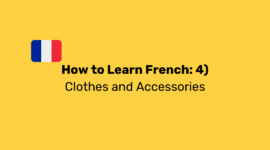
How to Learn French: 4) Shopping: French Words for Clothes and Accessories
Welcome to the fourth episode of our "French words and lessons series: How to learn French easily". In this edition, we will venture into the world of shopping, focusing on French words related to clothes and …
Read more